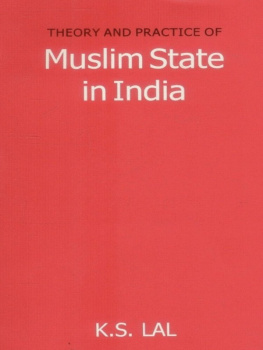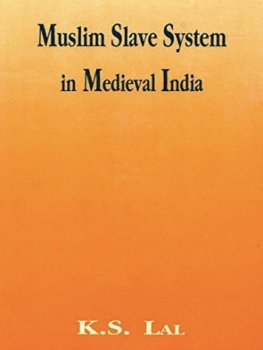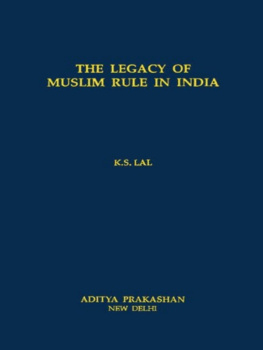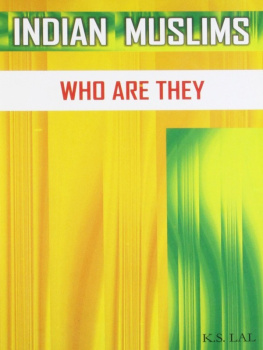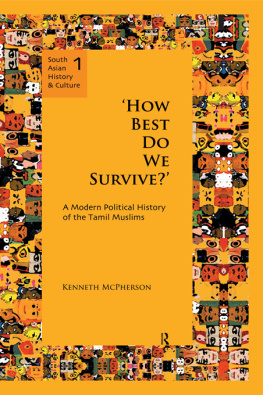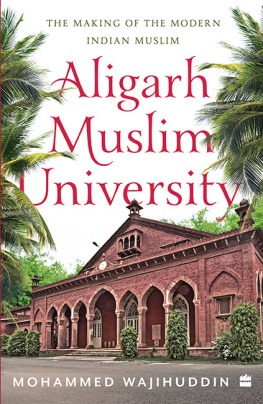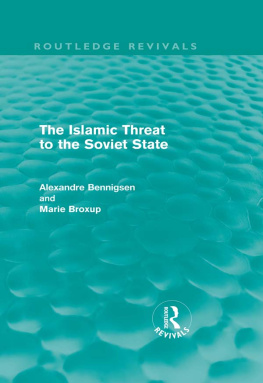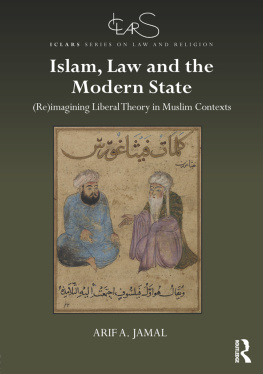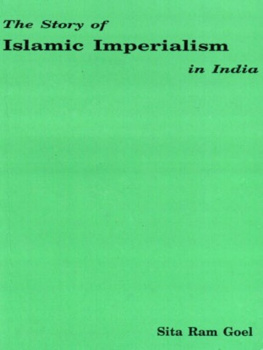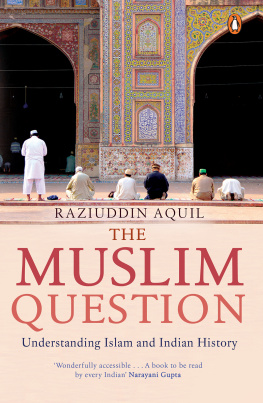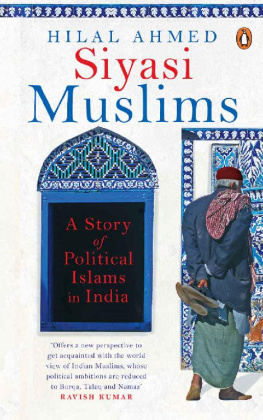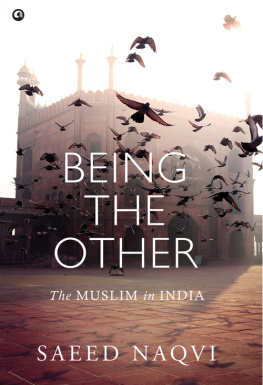Preface
Preface
My first article, "The Spirit of Muslim Government in India", was published in the Annual Bulletin of the Nagpur University Historical Society, No. 2, October 1947. It was revised and published under the title Muslim State in India by Vichar Prakashan, Allahabad, in 1950 in the form of a small book. Chapters on Muslim administration and government are also included in my History of the Khaljis (1950), Twilight of the Sultanate (1963), Studies in Medieval Indian History (1966), Early Muslims in India (1984), and The Legacy of Muslim Rule in India (1992).
Now fifty years after my first brochure on the subject, I present before the scholars my latest book entitled The Theory and Practice of Muslim State in India. Its raison desire is that in my earlier endeavours, no attempt had been made to trace the relationship between the injunctions contained in Islamic religious literature and the attitudes and actions of Muslim kings and conquerors. Ordinarily, historians writing on medieval Indian history refer to Muslim chronicles and histories as their only source materials. The study of Islamic scriptural literature like the Quran, the Hadis, the Biographies of the Prophet and the Shariat is ignored in historical studies as it is considered to belong to the domain of religion rather than to that of history. However, the study of this literature reveals that Muslim invaders and rulers were not cruel or fanatical by themselves as such, but they became so by pursuing the malevolent ideology as projected in the Quran and the Hadis against the non-Muslims. That is why the study of the 'moral and spiritual' literature of Islam becomes so important for the study of its history also.
Muslim invaders and rulers of India belonged to different races and different countries. There were Arabs, Turks, Uzbegs, Pathans, Africans, Persians and what are called the Mughals. They belonged to different sects like the Shias, Sunnis, Wahabis, etc. Their rule extended for about a thousand years from the eighth to the eighteenth century in various parts of the country. Their chronicles are written in different languages like Arabic, Persian and Turki. But their behaviour follows a uniform pattern. Even those rulers and nobles who had converted to Islam from Hinduism, behaved with their erstwhile co-religionists like any Afghan or Turk or Mughal. They considered their bloody acts against Hindus or non-Muslims as acts of righteousness. The source of this uniformity of action is the Quran, the Hadis and the Sunnah which they quote with pride. That is why the theory part of the Muslim state in India assumes so much importance. These scriptures do not belong only to the past. They are in operation even now. Hate words like jihad, Kafir, and Mushrik are as current today as when they were first used about fourteen hundred years ago. Pious Muslims in long robes and pious Muslims in European dress (western dress does not make one modem in thought), in all places and at all times seek or provoke jihad with an appeal to the Quran. Regular wars (Arab-Israel, Iraq-Iran, Afghanistan), terrorist activities (India, Algeria, Egypt, even America), and communal riots (India) are all called and fought in the spirit of jihad. Such is the important place given to violence in Islam that when there are no non-Muslims to fight, the Muslims call one another Kafir and fight jihad. Consequently, all over the world Jihadic terrorism seems to be a major Muslim activity even today, whether it is carried on in Muslim or non-Muslim majority countries.
Hence the importance of both the theory and practice in the study of Muslim state in India. The theory part is traced to the Quran, the Hadis and the Sunnah or the Biographies of the Prophet; the Practice part to the principal activities of Muslim rulers in India as narrated by their chroniclers. The Quran of course is all important in Islam. But no less important is the Hadis. One is complementary to the other. The Biographies of the Prophet are equally important.
In the Urdu preface (ibtidaia) of Sahih Muslim's translation by Maulana Wahid-uz-Zaman, Bashir Ahmad Naumani says that there are six authentic collections of Hadis - Bukhari, Muslim, Nasai, Abu Daud, Tirmizi and Ibn Majah. Urdu translations of these, together with the original text in Arabic, have been published by Aitqad Publishing House, Delhi. Mr. Sita Ram Goel was good enough to lend them to me for study. He also made available to me the Holy Quran's Urdu and Hindi translations with Arabic text published from Rampur. Thus I have been able to consult the most authentic translations of Islamic scriptures done by Muslims themselves and not by Western scholars who are sometimes accused of interpreting Muslim scriptures with a bias. And I do not speak myself, but let the Muslims speak, giving extensive quotations from their classical authors.
The most accepted biography of Prophet Muhammad is by Ibn Ishaq. Its English translation has gone through many reprints in Pakistan alone. The Life of Mahomet written by William Muir and Mohammed and the Rise of Islam by D.S. Margoliouth are equally authentic. These are based on primary source materials including Hadis and I find that the accusation of these authors being prejudiced is not correct.
So far as evaluation of medieval Muslim chronicles is concerned, it has been done by me earlier in most of my books. There is no need to repeat what has been written about them earlier. Also the present study covers only the overall polity of medieval India; it does not deal with the provincial or regional Muslim States like Bengal, Malwa, Gujarat, the Bahmani kingdom or Kashmir. However, wherever Muslim rule prevailed, the basic principles of governance were the same. In short, 'Muslim State in India' represents the theory and practice of all states in India ruled by Muslims.
This book has three parts. Part I deals with the Muslim state in medieval India, its obligations, its income and expenditure, its jihad, its justice in historical perspectives. Part II is entitled Politics, for Muslim state in India has not ceased to exist even in modern times and Indian Muslims on account of Islamic laws and separate identity almost form a separate state within the Indian State. Part III is a Reposte on reviews of some of my books, carrying reiteration of some of my statements which have been challenged only with a motive to challenge.
K.S. Lal

